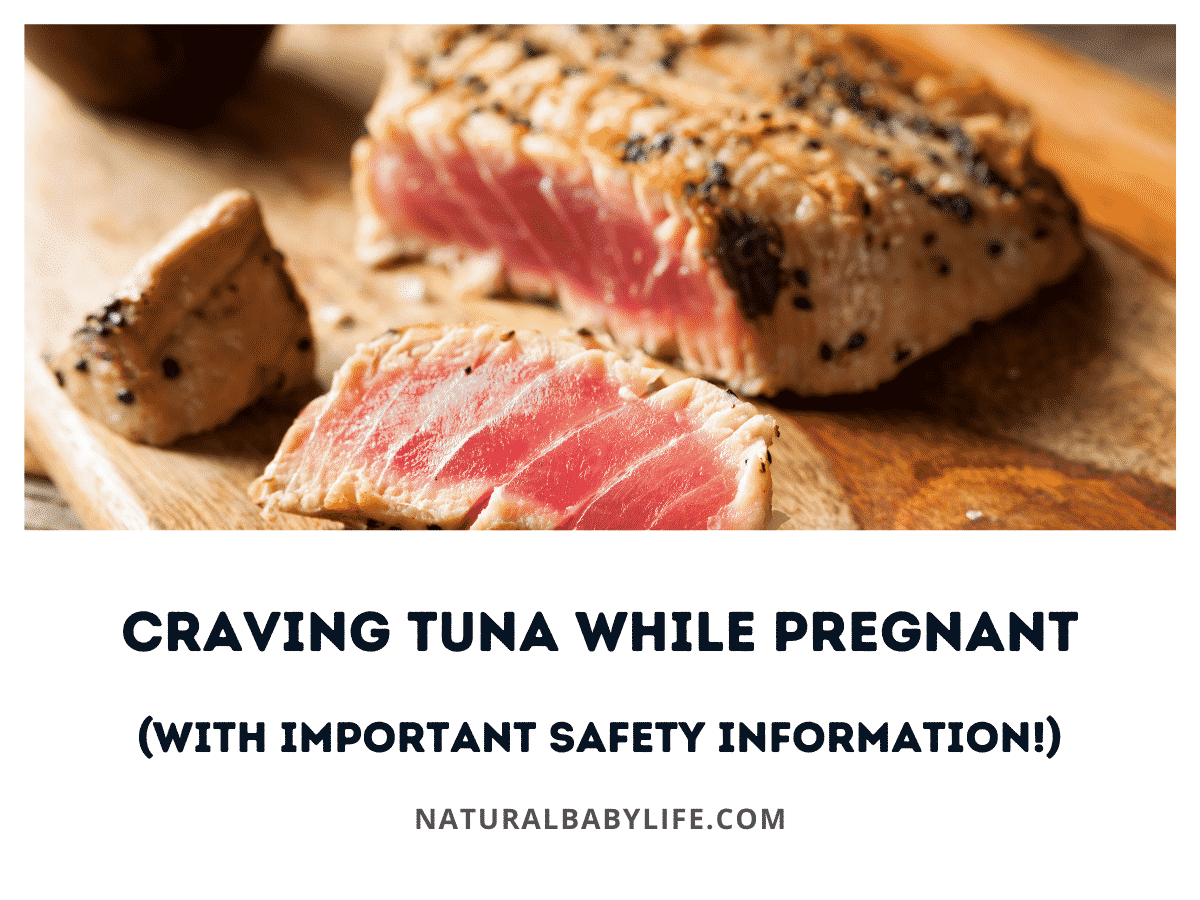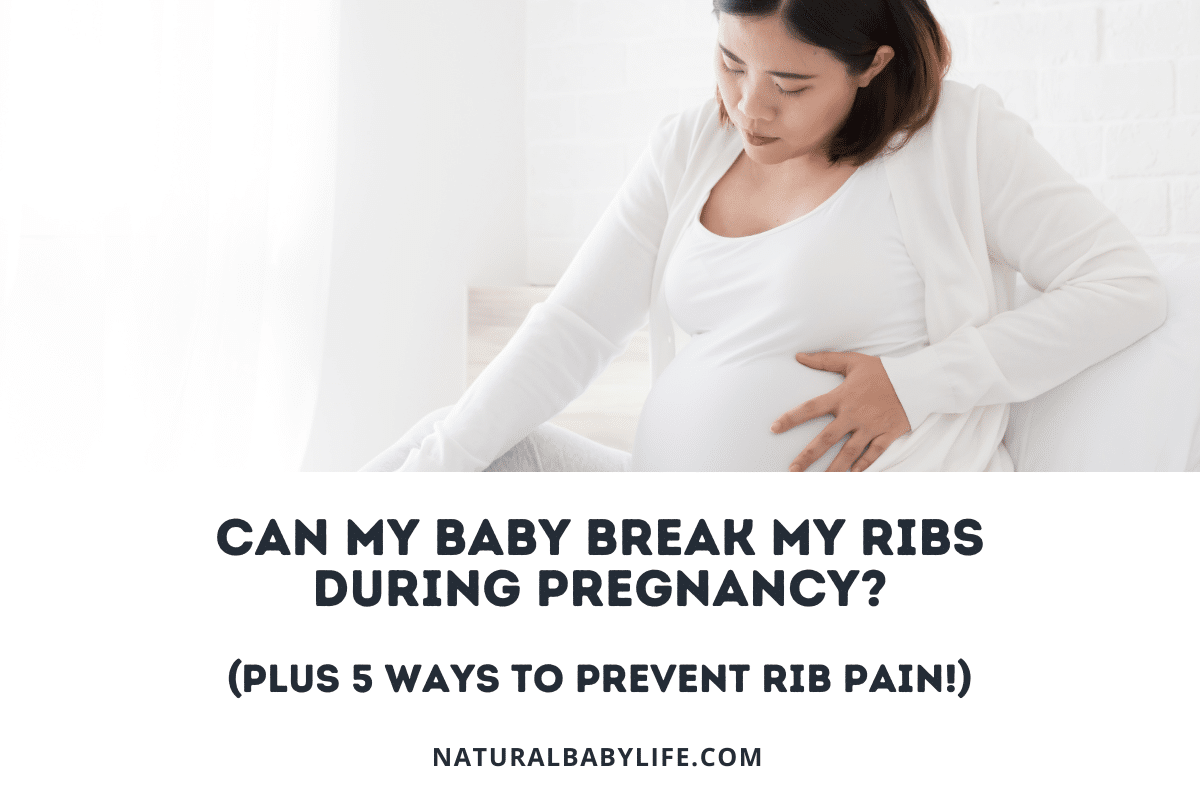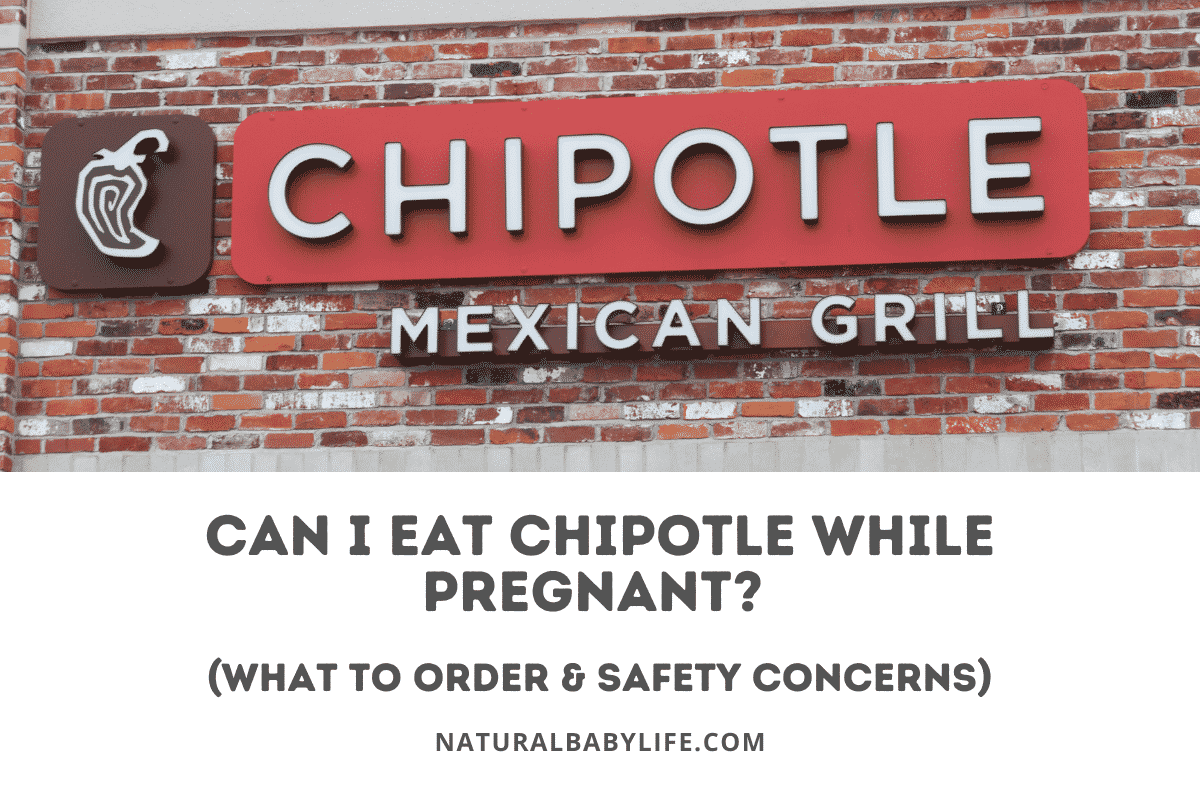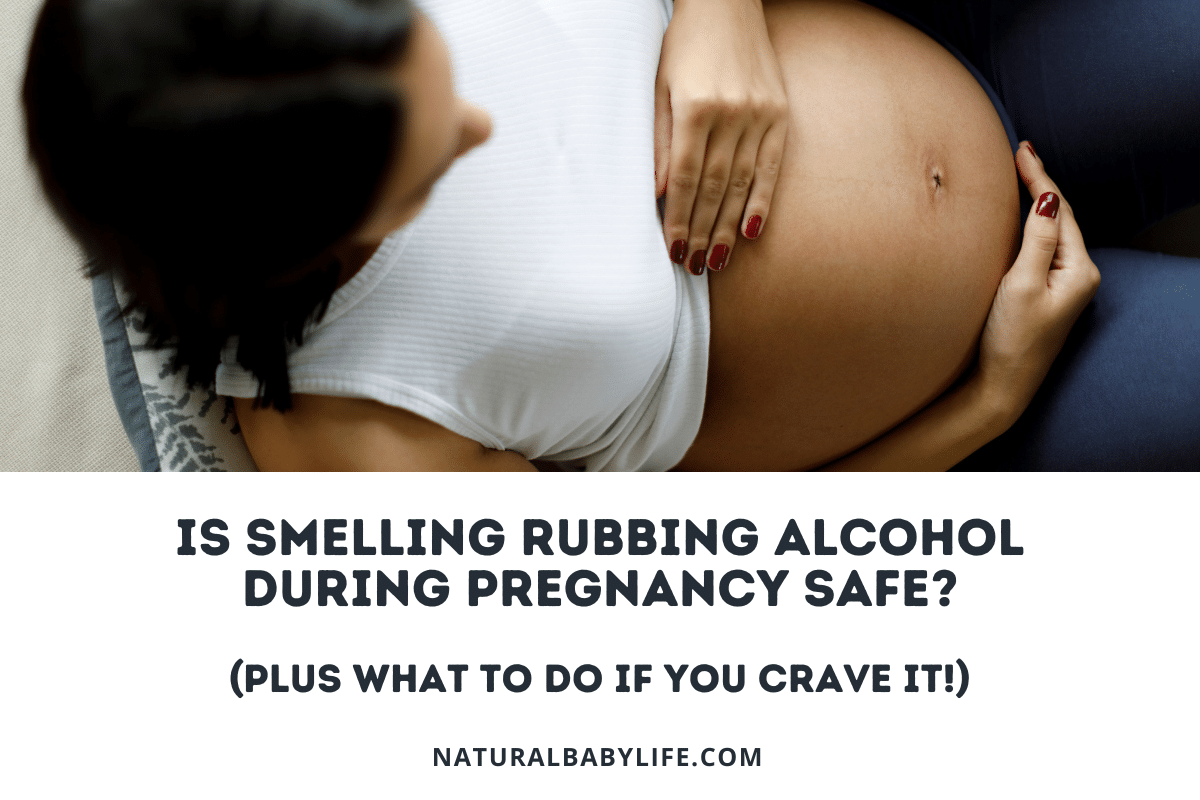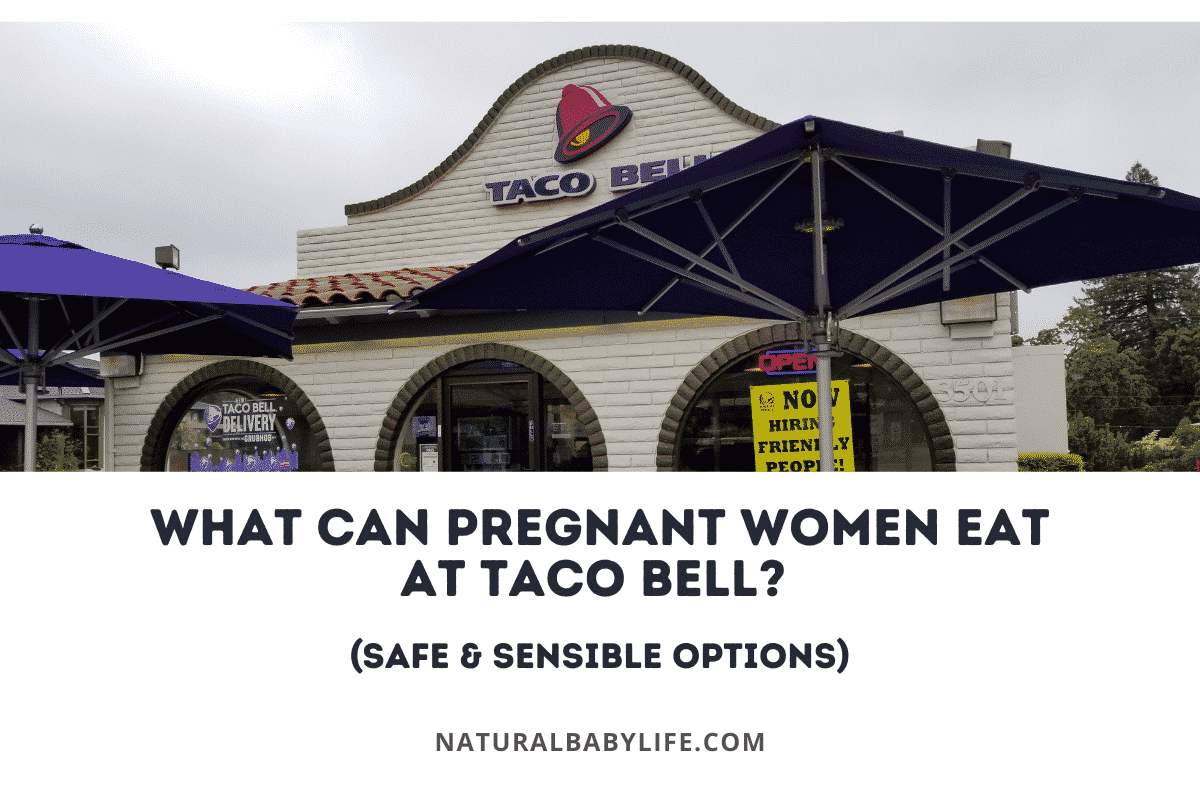It’s not uncommon to have wild cravings during pregnancy, but women pregnant women find themselves simply wanting meals they used to eat regularly, but may not be advisable to consume while pregnant. Tuna is one of these meals – is it safe to eat while pregnant?
Seafood and fish – especially tuna – are among the most common pregnancy cravings according to expectant mothers. As long as you stick to the current recommendation that women consume a maximum of 12 ounces (or two servings) of low-mercury fish (such as light tuna) per week, it is perfectly safe to indulge in your tuna craving.
Keep reading for more information about what is safe and how normal it is to eat tuna during pregnancy.
Table of Contents
Is it normal to crave tuna during pregnancy?
During pregnancy, women can crave a wide variety of foods and food combinations, from the unusual to the cliche to the incredibly common.
Fish is one of the most common cravings for pregnant women, with tuna being one of the most craved. Eating fish can be part of a healthy pregnancy diet, and is full of nutrition. Tuna can make a quick and easy snack or filling meal.
One of the most popular ways to satisfy this craving is with a tuna sandwich. “I allow myself one tuna sandwich from Subway a week if I want it. Some weeks I don’t, but I CRAVE tuna. My doc said it was ok, as long as I limited it to once a week.” reported one used on a popular pregnancy forum.
Another way is as a tuna melt. “I’ll make tuna sand or tuna melt usually once a week (Trader Joe’s tuna is my fave!) I also love it because it’s SO EASY and most of the time I don’t want to cook or spend $$ to eat out!” said another user on the same forum.
Tuna and crackers are an additional way many pregnant women enjoy tuna. “I had gestational diabetes during my last pregnancy. Tuna and crackers had just the right ratio of carbs to protein for me to safely satisfy my craving!” reported a third user.
When do cravings for tuna typically start during pregnancy?
Many food cravings start at the beginning of pregnancy and can start as early as 5 weeks. They typically begin in the first trimester, peak in the second trimester, and start to fade off during the third.
Many women crave tuna from the very beginning. One user on a popular forum stated, “oh man, during my first trimester for like 2 weeks straight I was eating a tuna sandwich every day, sometimes even in the middle of the night!”
Is it safe to eat tuna during pregnancy?
The FDA and EPA recently devised this chart based on the mercury level typically found in specific fish to help you figure out which fish are safe, how much of that fish should be eaten, and which fish to avoid. According to the FDA, “The 2015-2020 Dietary Guidelines for Americans recommends women who are pregnant or breastfeeding to eat 8 to 12 ounces (2 to 3 servings) per week of a variety of fish lower in mercury.”
Tuna, especially light tuna, is safe to eat during pregnancy in limited quantities. The main concern is mercury when it comes to eating fish. There are tuna species that contain lower levels of mercury as well as some that contain higher levels, which is why the recommendation for tuna is varied.
Fish that are larger and live longer generally contain more mercury so many fish that are higher on the food chain are not recommended for pregnant women.
Light canned tuna is considered the best choice because it is made out of a variety of smaller tuna species with lower mercury counts and is safe to eat 2-3 servings a week.
Albacore tuna, on the other hand, is a larger fish that lives longer so it is safe to eat but it is best to eat only one serving once a week.
Difference between canned and fresh tuna during pregnancy?
Tuna is a great source of nutrients and for years there has been back and forth whether canned tuna or fresh tuna is safer for pregnant women to consume. The latest information put out by the FDA states that tuna is safe for pregnancy, but the difference between canned and fresh tuna lies in how much can be consumed per week.
Light canned tuna is considered very safe due to the use of smaller tuna species and lower mercury content. It is on the FDA’s “best choice” list, which states that you can safely eat 2-3 servings of fish from that list a week, in any combination. However, some of the nutrients can be lost in processing.
Other tunas, which include fresh/frozen tuna and canned albacore, are on the “good choice” list that states women should only have one serving of fish off that list per week. This means that if you are having tuna steaks, you should only have it once a week with no other servings of any fish.
The biggest benefit of fresh fish is that you keep most of the nutrients, so it is highly beneficial to eat fresh fish every so often, but do it in moderation.
What happens if you eat too much tuna while pregnant?
The biggest risk with eating too much tuna (and other fish) during pregnancy is the amount of mercury taken in.
Try to keep your mercury intake low, but if you eat too much tuna in one week you can balance that by avoiding eating any fish the following week and get back on track with the recommended servings.
All fish and seafood have mercury in them, although the amount will vary by the fish’s size. Larger fish that eat other fish and that live longer will have more mercury in them since they also consume the mercury of their prey, so by eating small amounts of fish you will absorb safer levels of mercury.
Continuing to eat too much tuna can lead to damage to your baby’s development and growth.
What can too much mercury during pregnancy do?
Mercury can be found in the natural environment and will turn into a neurotoxin called methylmercury (usually referred to as just mercury) in water and sediment, which is why every fish has it inside of them.
This neurotoxin can affect the brain and the nervous system of a developing baby if too much is consumed during pregnancy. This can affect how the developing baby absorbs nutrients, leading to a range of issues from learning disabilities to developmental delays.
If you happen to eat a high mercury fish while pregnant, try not to panic. Do not eat fish again in that week and skip a week of fish to be on the safe side. After that, avoid eating it again and stick to the fish on the “best choice” or “better choice” lists.
Which fish has the highest mercury?
There are several fish that are considered not safe at all during pregnancy due to their high mercury count.
Did you know I have a complete resource available on craving fish while pregnant? Get all the information here!
These are the fish that should be avoided to ensure your baby can develop properly:
- Shark
- Swordfish
- King Mackerel
- Tilefish
Is tuna good for pregnancy?
Fish and other seafood, including tuna, are a wonderful source of protein, iron, and zinc. These nutrients are essential for a baby’s growth and development. These are also a wonderful source of omega-3 fatty acids that are needed to help a baby’s brain develop. Fish is also low in fat and the fat it does contain is full of polyunsaturated (good) fats.
The new Dietary Guide for Americans includes fish as part of a pregnant woman’s healthy diet. They are a good source of many B vitamins, like vitamin B12, and oily fish provide vitamins A and D.
Some of the benefits you and your baby will get from eating tuna include:
- Protein – essential for baby’s growth
- EPA and DHA – these long-chain omega-3 fatty acids aid in your baby’s eye and brain development
- Vitamin D – helps with immunity and bone growth
- Iron – helps with baby’s brain and nervous system development
- Vitamin B12 – helps the nervous system function as well as makes protein and red blood cells
What does it mean if you crave tuna while pregnant?
There is really no proven reason behind women’s food cravings while pregnant.
One of the leading theories is that food cravings mean your body is lacking a particular nutrient, but there has been no current research to support this theory.
One of the biggest myths surrounding fish is that you cannot eat tuna (or any other fish or seafood) at all. This stems from the concerns around mercury but goes against current guidelines set by the FDA.
Although you shouldn’t eat raw sushi or any of the high mercury fish, eating tuna (and other low mercury fish) is perfectly safe as long as you watch how much you eat and how often.
For detailed information about which varieties of sushi are and are not safe to eat while pregnant, check out this resource.
Does craving tuna while pregnant mean it’s a boy or girl?
While it would be nice to be able to tell your baby’s sex based on cravings, this is unfortunately a pipe dream. Cravings are not definitively tied to the baby’s gender. However, there is an old wives’ tale that makes a prediction.
According to some myths, craving fish means that you will be having a baby girl! This is of course not based on science so take it with a grain of salt and I wouldn’t go out to start buying pink decor.
If you want to learn more, I have a HUGE list of the most common pregnancy cravings just for you!

